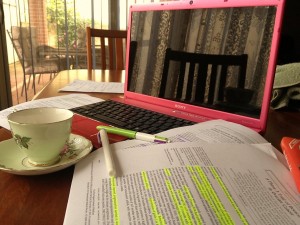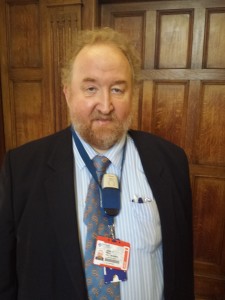
Hi, my name is Jeanie and I’m a clinical pharmacist from Perth, Australia. After finishing my postgraduate studies in pharmacy I realised that oncology was still a big mystery to me. Working in a teaching hospital where many weird and wonderful things happen on a daily basis only exemplified that! I attended an introductory course on oncology and realised that I wanted to know more – a lot more. After a long search of cancer related courses on the internet, I thought Newcastle sounded like a good course – it was online, covered many different aspects of oncology (more than what a pharmacist would learn) and the Programme Team answered my emails very quickly!
Prior to starting the course, I hadn’t studied via e-learning. I was a little worried that I would find it difficult to be self- motivated, but having the discussion board for each subject really helps. I’ve ‘met’ so many people from around the world and also found others studying close by! Seeing how things are done differently in other countries has made me open to new ideas and possibilities. The module leaders are also very encouraging and helpful if you encounter problems along the way.
Studying via e-learning is also very handy for learning on-the-go. I’ve read articles and module notes on my phone or tablet while on public transport and on aeroplanes! It’s really portable and the iPad app for Blackboard is easy to use. The course is also very up to date – you can watch videos and look at very recent news articles. You can also print anything you want if you prefer.
I’ve found it fairly easy to study part-time while working full time – one or two units per semester. The hardest thing I’ve found is that the UK semesters run Spring to Autumn in Australia, so sometimes staying inside during beautiful weather can be difficult! I usually set aside time on the weekend to studying at the dining room table with a cup of tea (or three) to work through the topic with my ‘supervisors’ (my budgie and cockatiel).
I think the MSc Oncology course has been really beneficial so far – I’ve developed confidence and knowledge, which I am passing along to younger pharmacists and I understand the roles of others in the oncology team. Studying has also helped me to obtain a specialty pharmacist position – thanks Newcastle!
